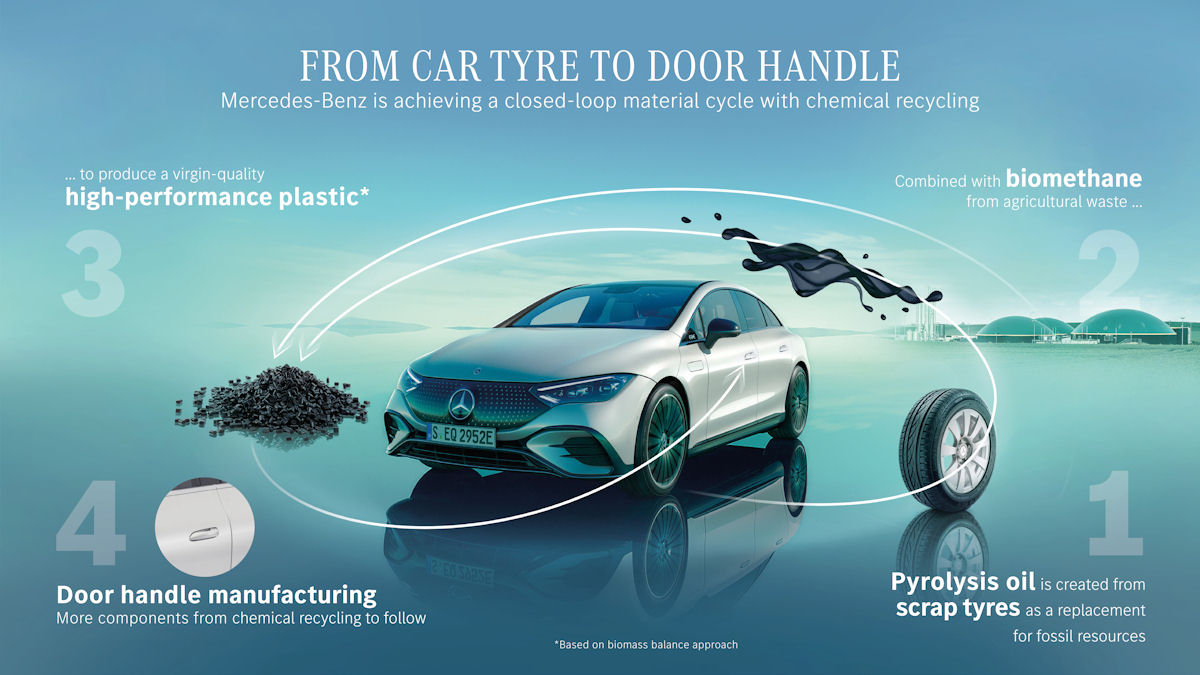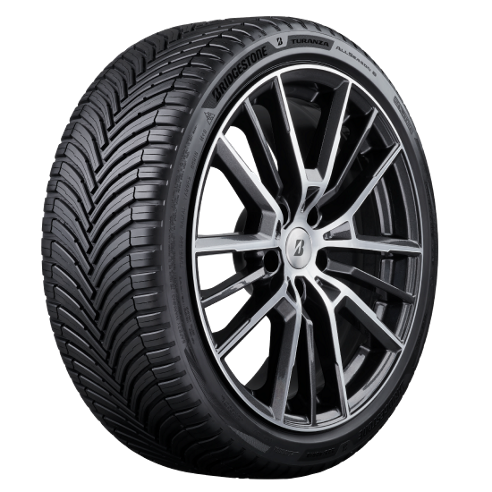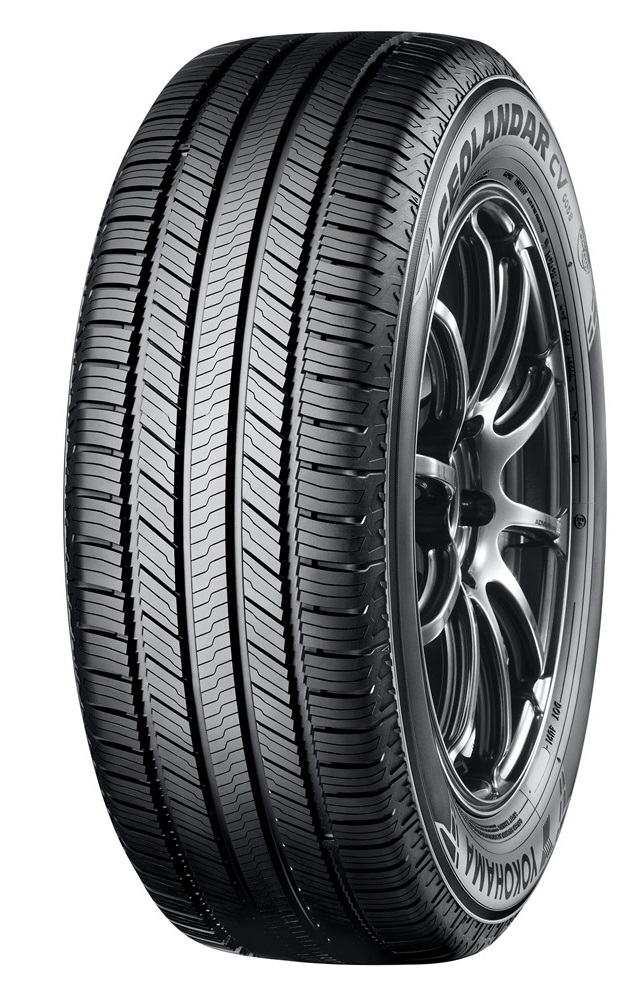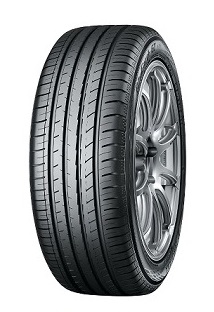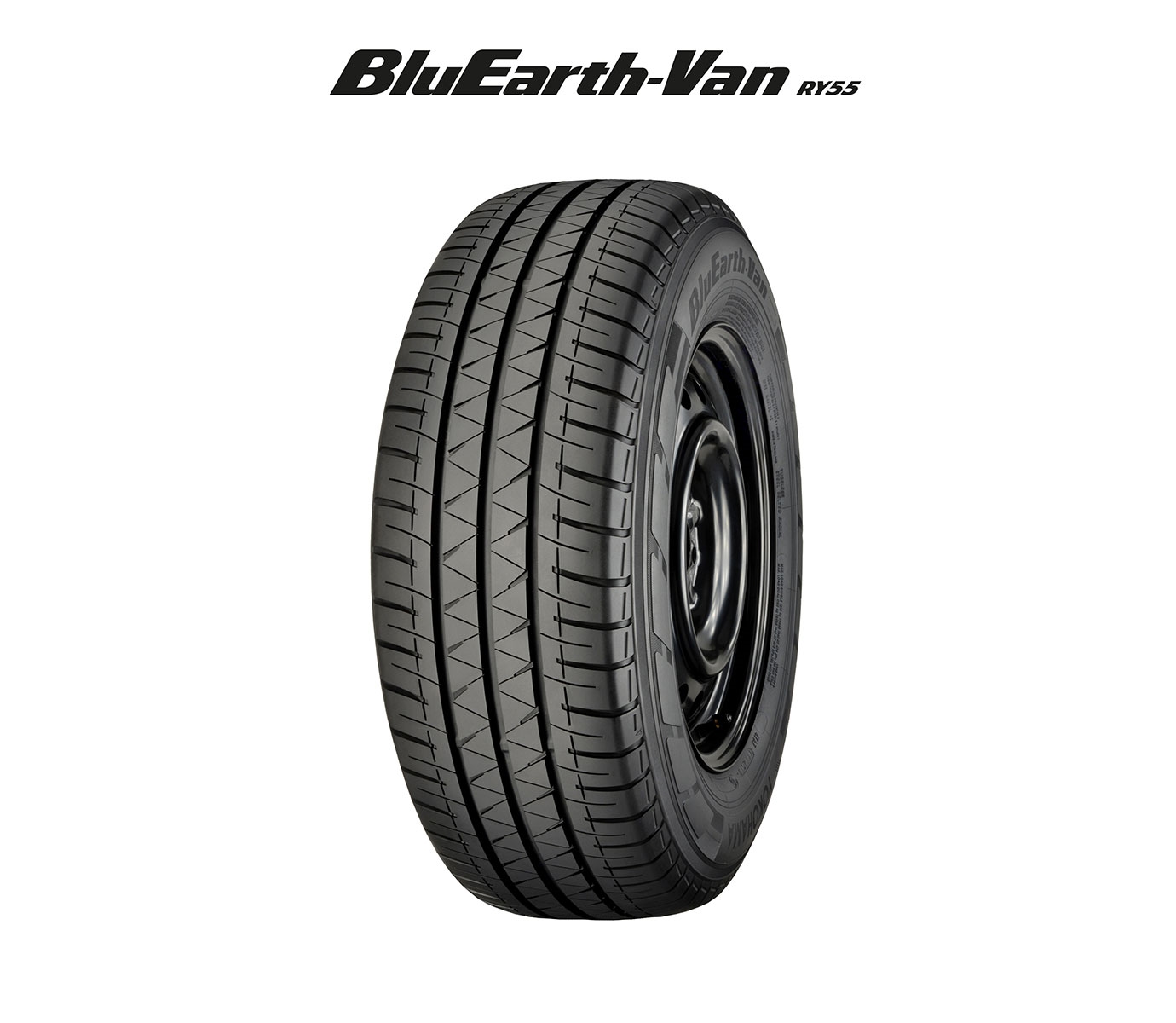Discarded tyres will soon find a new home within the latest Mercedes-Benz models. Pyrum Innovations, a German firm that uses a process known as pyrolysis to produce oil from end-of-life tyres, is supplying this substance to chemical and materials company BASF, which combines the oil with biomethane to make plastics for vehicle components. Before the end of the year Mercedes-Benz EQE and S-Class models will roll off the production line fitted with door handles made from old tyres.
“Through close collaboration with our supplier network, we are replacing raw fossil resources with pyrolysis oil made in part from recycled scrap tyres supplied by Mercedes-Benz. Components featuring this technology will enter series production in a number of our models as soon as this year,” says Markus Schäfer, chief technology officer and Mercedes-Benz Group Board of Management member responsible for development and procurement. “We anticipate being able to chemically recycle several hundred tonnes of scrap tyres from Mercedes-Benz vehicles every year and use the resulting plastic in our new vehicles. Together with our partners, we are closing the materials loop and actively driving the development of innovative recycling processes.”
“Since the foundation of Pyrum, we have been working on getting closer to a circular economy step-by-step,” adds Pascal Klein, chief executive officer of Pyrum Innovations. “In view of finite deposits, the aim can only be to minimise the consumption of natural resources and to use as much recycled raw material as possible in production. The fact that our pyrolysis oil is used as a basis for the production of Mercedes-Benz vehicle components shows the high quality of our products.”
Significant potential
The combination of pyrolysis oil and renewable biomethane from agricultural waste results in a completely new plastic which has the same properties as virgin plastic made from crude oil. Mercedes-Benz states that reduced carbon footprint and fossil resource usage are not the only benefits – the material also fulfils its quality demands, especially in respect of paintability and crash safety. “These properties mean the process has the potential to replace a large number of vehicle components made from primary plastic,” says the vehicle manufacturer.
In addition to the aforementioned door handles, Mercedes-Benz will also equip the S-Class with a crash absorber made from the recycled plastic material. The vehicle manufacturer is currently exploring further possible applications for the recycled material as part of its goal of increasing the proportion of recycled materials in its car fleet to an average of 40 per cent by 2030.

